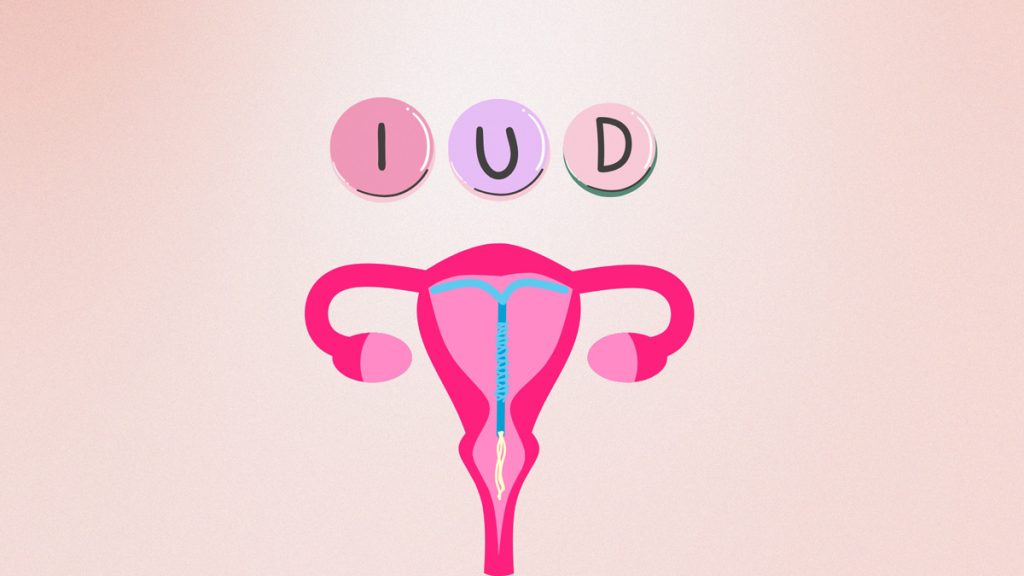An intrauterine device (IUD) is a small, T-shaped contraceptive device inserted into the uterus to prevent pregnancy. As a form of long-acting reversible contraception (LARC), IUDs are gaining popularity due to their effectiveness and convenience.
Wondering if this works for you? Let’s explore the different types of IUDs, their benefits, and important considerations.
First things first. What is an IUD?
An IUD is a small, often T-shaped device placed inside the uterus to prevent pregnancy. It functions by either releasing hormones or utilizing copper to interfere with sperm mobility and egg fertilization. Depending on the type, IUDs can remain effective for several years, offering a long-term contraception solution.
Types of IUDs
Copper IUD
The copper IUD is a non-hormonal device that releases copper ions, creating an environment toxic to sperm, thereby preventing fertilization.
Duration of Use: Copper IUDs can provide contraception for up to 10 years.
Pros and Cons:
- Pros: Highly effective, hormone-free, and can be used for up to 10 years.
- Cons: May cause heavier periods and cramping.
Hormonal IUD
Hormonal IUDs release progestin, which thickens cervical mucus and thins the uterine lining, preventing sperm from reaching the egg.
Duration of Use: Depending on the brand, hormonal IUDs can last between 3 to 8 years.
Pros and Cons:
- Pros: Highly effective, long-lasting, can reduce menstrual bleeding and cramps.
- Cons: Potential side effects include spotting during the first few months, mood changes, and headaches.
Benefits of Using an IUD
- Highly Effective: IUDs are among the most effective forms of contraception, with a success rate of over 99%.
- Low Maintenance: Once inserted, IUDs require minimal maintenance, offering continuous protection without daily attention.
- Long-Term Protection: Depending on the type, IUDs can provide contraception for 3 to 10 years.
- Reversible: Fertility typically returns quickly after IUD removal, allowing flexibility for future family planning.
- Cost-Effective: Although there may be an upfront cost, IUDs can be more affordable in the long run compared to other forms of contraception. Plus, IUD insertion is covered by PhilHealth, making it an even more accessible option.
Considerations Before Getting an IUD
Consultation with a Healthcare Provider: It’s essential to discuss personal health, reproductive goals, and any pre-existing conditions with a doctor before choosing an IUD.
Potential Side Effects: Possible side effects include cramping, spotting between periods, and changes in menstrual cycles. Hormonal IUDs may also cause mood changes and headaches.
Insertion Process: The insertion procedure can cause discomfort, but the pain is usually brief.
Who is a Good Candidate for an IUD?: IUDs are suitable for many women, including those who have not had children.
Myths and Misconceptions About IUDs
Myth #1: IUDs are only for women who have had children: Both women who have had children and those who haven’t can use IUDs.
Myth #2: IUDs cause infertility: IUDs do not affect long-term fertility when used correctly.
Myth #3: IUDs are very painful: While insertion can be uncomfortable, the pain is usually brief. In fact, an IUD is so small that it’s barely noticeable once in place.
Myth #4: IUDs increase the risk of pelvic infections: Current models do not affect the risk of pelvic inflammatory disease in women without sexually transmitted infections during the time of insertion.
How to Choose the Right IUD for You
Factors to Consider: Evaluate health conditions, family planning goals, and lifestyle when choosing between a copper or hormonal IUD.
Consulting a Healthcare Provider: Professional medical advice is crucial to choose the most suitable option.
Other Options for Contraception: Other long-term contraception options include implants and sterilization, each with its own set of considerations.
IUDs offer a highly effective, low-maintenance, and long-term contraception option. Understanding the different types, benefits, and considerations is essential for making an informed decision. Consulting with a healthcare provider can help determine if an IUD is the right choice for your contraception needs.
—
Reference/s:
Healthline. (2015). Comparing Hormonal and Nonhormonal IUD Brands. Retrieved March 7, 2025, from
https://www.healthline.com/health/birth-control/mirena-paragard-skyla
Philippine Health Insurance Corporation. (2015). Social health insurance coverage and benefits for women about to give birth (Revision 1).
https://www.philhealth.gov.ph/circulars/2015/circ025-2015.pdf
Intermountain Healthcare. (2019). The Benefits of Using an IUD for Birth Control. Retrieved March 7, 2025, from
https://web-ih-sc-prd-hdl-wus2.azurewebsites.net/blogs/the-benefits-of-using-and-iud-for-birth-control
Medical News Today. (2018). Which IUDs are the best? Benefits, risks, and side effects. Retrieved March 7, 2025, from
https://www.medicalnewstoday.com/articles/323230
Everyday Health. (n.d.). Types of IUDs: Which Is Right for You?. Retrieved March 7, 2025, from
https://www.everydayhealth.com/womens-health/which-iud-is-right-for-you/








